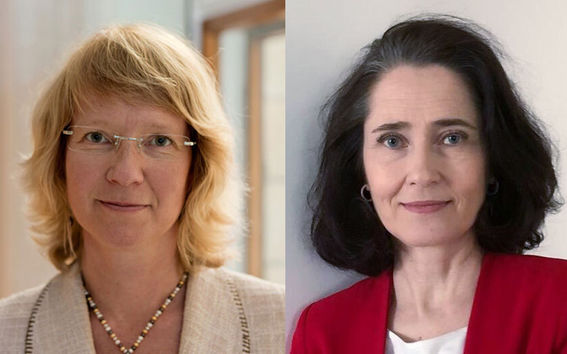Corporate responsibility practices require more effectiveness and competence

There is a lot of activity around business sustainability these days – and yet the world does not seem to be getting better at a corresponding rate. It is as if the pathways to business sustainability are broken in ways that prevent us from getting there. In our study (Halme, Rintamäki, Knudsen, Lankoski, & Kuisma, 2020), we conducted interviews with 167 managers and stakeholders of large automotive, telecom, retailing, and garment corporations from ten countries. We analyzed firms’ corporate responsibility activities against their resulting sustainability performance, and identified three instances of such broken pathways.
The ideal pathway to business sustainability goes as follows: The firm experiences sustainability pressures in its institutional environment (for example, calls to urgently address climate change), adapts to those pressures (for example, by eliminating not only current carbon emissions but also historical climate damage), and the result is improved sustainability performance. Note that it is very important not to confuse actual sustainability performance (that is, the environmental and social impacts of the firm) with the various corporate responsibility activities that firms may undertake and that are antecedents to such performance.
Deviations from the ideal pathway are not allowed if the firm is to truly achieve the improved sustainability performance. Yet, there are crucial moments when things could go wrong.
First, to respond to sustainability pressures, the firm needs to set corresponding policies and goals through strategic corporate responsibility management. This is where the first rupture may occur. There may be so-called pressure-policy decoupling, where the firm’s policies are disconnected from the institutional pressures: either the policies do not try to reflect those pressures at all, or they remain too unambitious to really reflect them. Consequently, the firm is off course from the ideal pathway and the result is non-improved sustainability performance. This rupture can be named “Not even try”.
For firms that pass this first hurdle, the second challenge occurs between strategic and operative corporate responsibility management. Firms need to implement their policies by incorporating them in the structures and practices of the organization. If this does not happen, we get policy-practice decoupling where there is only symbolic implementation of the policies or even no implementation at all. This rupture on the pathway to sustainability can be called “Look as if”, since through its policies the firm gives the impression of sustainability, but it is not following through on that promise. Again, the result is non-improved sustainability performance. For example, it has recently been argued that signatories to the 2019 Business Roundtable statement on corporate purpose (which emphasized commitment to all stakeholders and not just shareholders) did not go on to subject the statement to their boards for approval, suggesting that no major change was intended, and did not behave more positively towards their stakeholders during the COVID-19 pandemic.
For firms making it this far, the third rupture on the pathway is present when they genuinely try to implement their sustainable policies, but still do not achieve the expected outcomes because the implementation measures are ineffective. This situation, which we name “Try but fail”, is called means-ends decoupling, with the familiar end result of non-improvement of sustainability performance.
There are, thus, three kinds of situations that prevent us from achieving business sustainability as they derail firms from the ideal pathway leading to sustainability performance improvements. An understanding of these situations is important because each calls for a different solution.
To overcome “not even try”, institutional pressure must be strong and clear and firms need to be held accountable for setting policies that are relevant and ambitious. To overcome “look as if”, accountability is again called for so that firms cannot get away with purposeful greenwashing, but so are training and tools in case it was a lack of ability that was behind the lack of implementation. To overcome “try but fail”, training is required for firms that lag behind in their sustainability management skills, and new research and tool development to advance the field of corporate responsibility management in general is also essential.
In sum, we must keep clear sight of ensuring that all the buzz around corporate responsibility really results in tangible environmental and social improvements. To achieve this, firms – in collaboration with their stakeholders – must walk the narrow pathway to business sustainability, paying particular attention to these three crucial instances.
The above text was written by Professor Minna Halme and Senior University Lecturer Leena Lankoski from the School of Business and was first published as a blog post on Business & Society.
https://businessandsociety.org/does-corporate-responsibility-deliver/
The publication ‘When Is There a Sustainability Case for CSR? Pathways to Environmental and Social Performance Improvements’ won the Best Article Award in 2020 in the Business & Society journal. Business & Society is the leading research publication in the field of sustainable business. The article has free access until October 2021:https://journals.sagepub.com/doi/10.1177/0007650318755648
Read more news
Soil Laboratory Exhibition – Exploring the Dialogue Between Human and the Earth in Utsjoki
Soil Laboratory explores the relationship between humans and the earth as a living landscape through ceramic practices in Utsjoki.
The Finnish Cultural Foundation awarded grants for science and art
A total of 15 individuals or groups from Aalto University received grants
Environmental Structure of the Year 2025 Award goes to Kalasatama-Pasila tramway
The award is given in recognition of meritorious design and implementation of the built environment. Experts from Aalto University developed sustainability solutions for the project.






